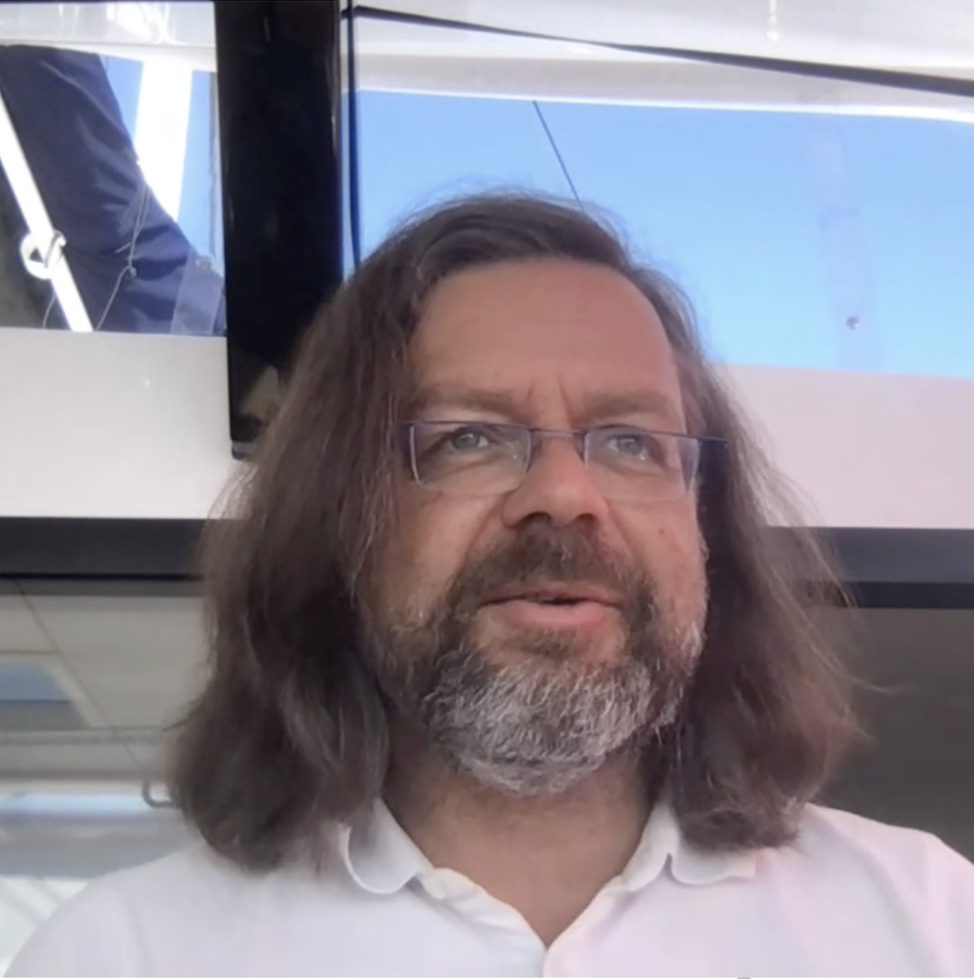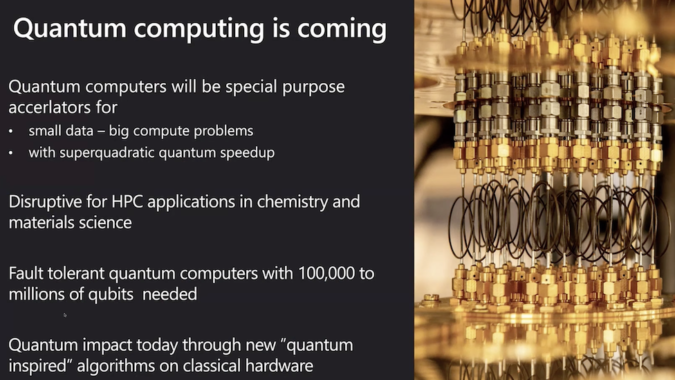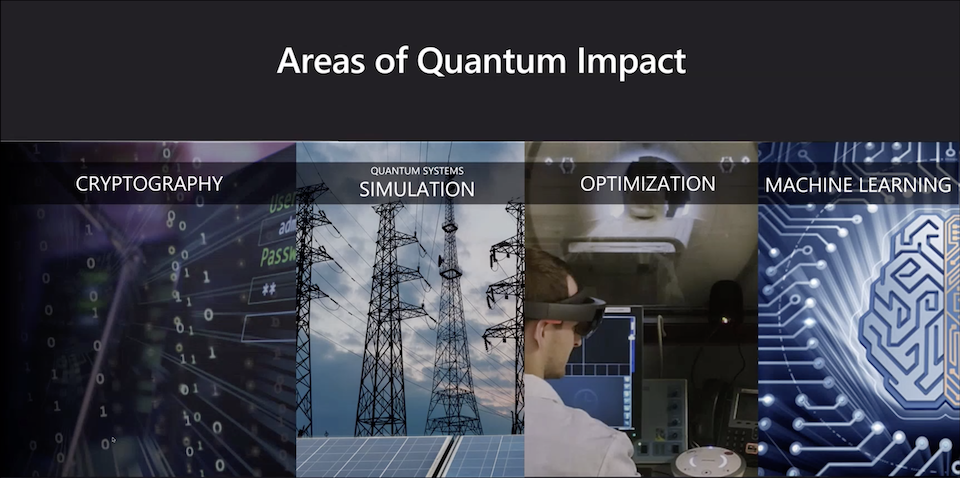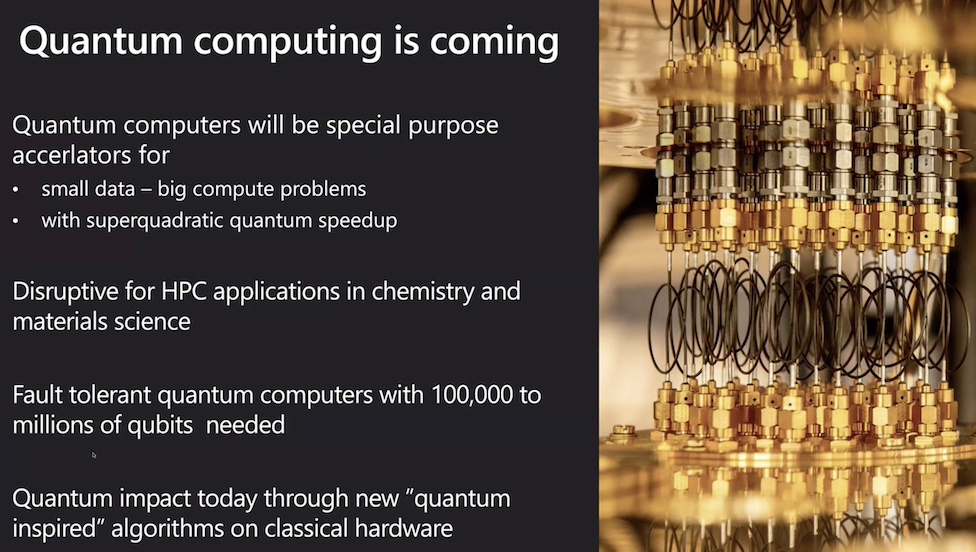Matthias Troyer, who leads Microsoft’s quantum computing research, is on a mission, actually two missions. One is to develop practical applications for quantum computing. The other, also important, is to convince the HPC community that efforts to develop quantum computing – so frequently overhyped and off-putting as a result – are actually worthwhile and they should enlist in that effort. Those were central themes in Troyer’s ISC21 keynote – Quantum Computing: From Academic Computing to Real-World Application – delivered today.

“I’m a distinguished scientist at Microsoft, where I lead the design systems team centered architecture team for quantum computing. And I work on finding out the 50 best applications for quantum computing. Today, I want to walk you through a story to tell you where quantum gear will be useful. I will get across some myths [and debunk them], and I will show you where the real impact will be,” said Troyer at the start of his talk.
With that he plunged ahead delivering an accessible account of (roughly) how quantum computing works, (precisely) why quantum is important, (likely) what will be among its more useful applications. True, the dramatic payoff is still years off, but useful work is being done now, often using quantum-inspired algorithms on classical systems. He calls this latter activity proof of ‘quantum impact’ today and discussed one example in his keynote.
The QC future is indeed tantalizing if we can get there. A 250-qubit system, for example, could have more states than there are atoms in the universe. That’s a lot of power. Comfortingly to many, Troyer noted that HPC software developers today are likely to work just as they do now, using familiar tools and making heavy use of libraries of quantum algorithms – just as they use libraries in classical computing.
Except for the addition of stunning graphics, Troyer covered largely the same material he discussed with HPCwire in a preconference interview. He noted then “Quantum is disruptive. It will change computing, and it will enable computations that are just totally unimaginable classically. But quantum computers will not be general purpose. They will not solve all problems. They will be like purpose accelerators for problems for chemistry, material science, and we’ll find more [applications] in the future. It could be useful for machine learning or small data problems. We don’t know yet what else comes but it will be as special purpose accelerators.”
As he covered largely the same fascinating ground, we present that interview again from the link below:
Link to HPCwire interview with Troyer – ISC Keynote: Glimpse into Microsoft’s View of the Quantum Computing Landscape





























































